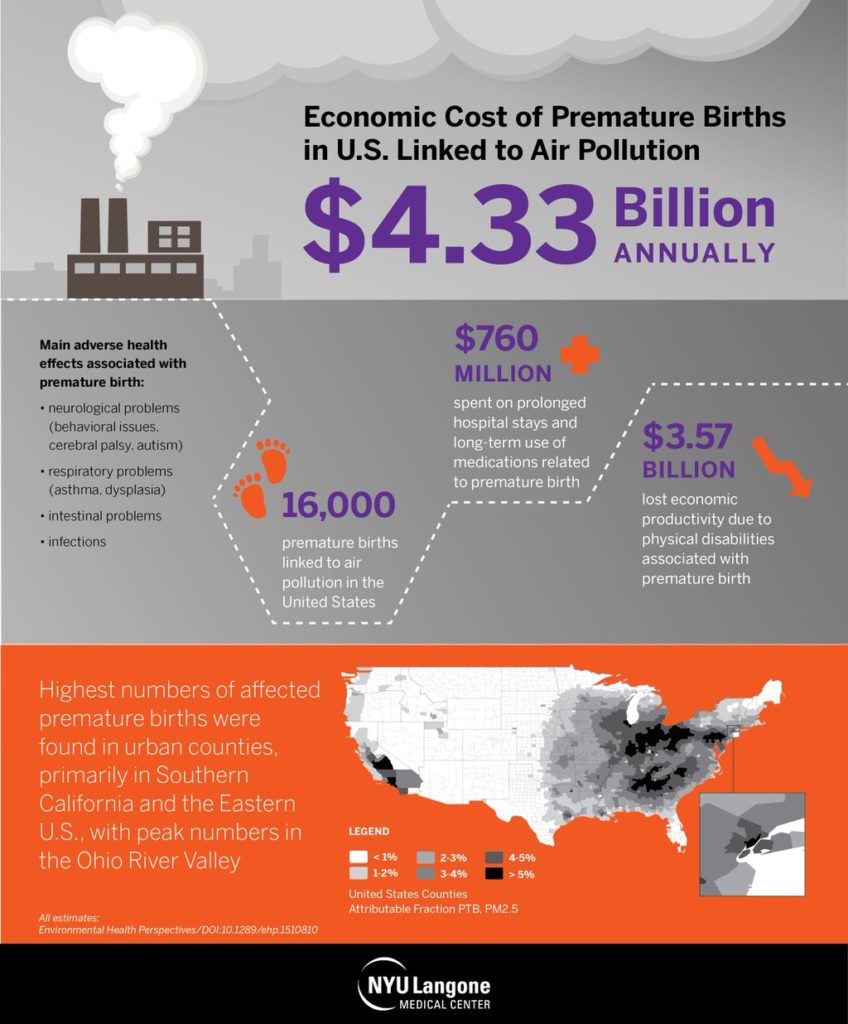A new study adds to the weight of evidence linking premature births to particulate matter air pollution (PM) – a cautionary note for those who live near highways and other sources PM. This research, by Swedish, British, and American scientists, links almost 1 in 5 premature births to fine PM air pollution.
Research published last year by researchers from NYU and other universities estimates the costs of premature births in the U.S. linked to air pollution at over $4 billion per year, and emphasizes that “considerable health and economic benefits could be achieved through environmental regulatory interventions that reduce PM2.5 exposure in pregnancy.”
The primary sources of PM air pollution in the U.S. are traffic-related air pollution, particularly from diesel engines, burning of biomass, and coal power plants.

